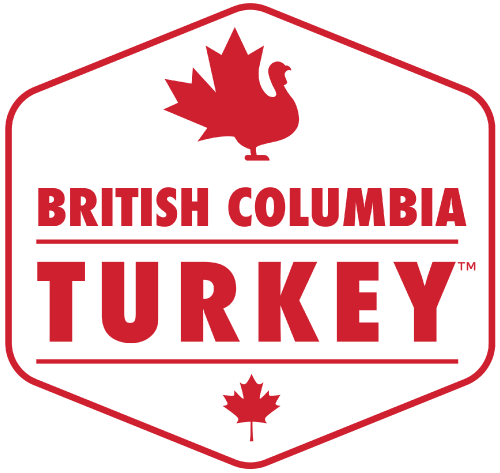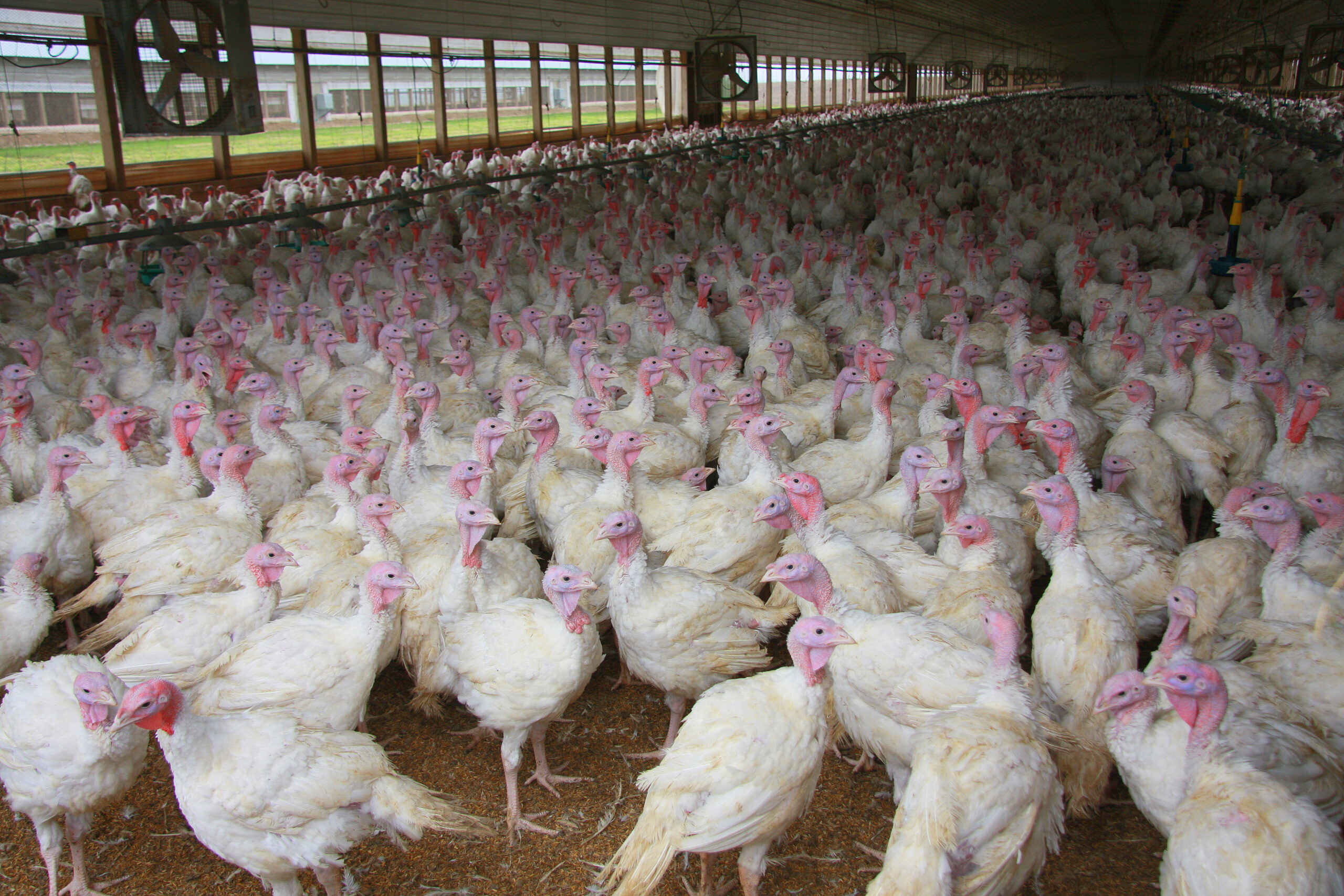Flock Care Program
The Flock Care Program (FCP) is a national program that is overseen by Turkey Farmers of Canada. The FCP requires detailed on-farm record-keeping and documentation to verify that farmers are meeting all requirements to properly handle and care for their birds.
In BC – and the rest of Canada – most turkeys are raised in specially designed barns that provide protection from predators, disease and bad weather (though some may be grown in semi-controlled housing or on range). Barns are monitored with regard to temperature and climate, light, space, and access to food and water, as mandated by TFC’s Flock Care Program. Turkeys are not kept in cages and are free to roam on floors that are covered with soft bedding.
Day-old turkeys (poults) are placed in these climate-controlled barns where they are kept warm and given special care immediately upon their arrival from the hatchery. This first stage of their life, from the time they are placed to five-six weeks of age, is called brooding.
The next stage, known as the growing cycle, runs until the birds grow to between 11 and 17 weeks of age, when they will reach their desired market weight. Hens (females) are typically grown for the whole bird market, while toms (males) are more likely to be grown for the further processed market (though some are sold as whole birds).
The Flock Care Program incorporates biosecurity procedures and requires detailed on-farm record keeping and documentation. The BC Turkey Marketing Board audits all registered turkey farmers in BC on a regular basis to ensure compliance with the program.
The FCP has passed technical review by the Canadian Food Inspection Agency (CFIA), indicating that it is based on sound science and meets all Canadian regulatory requirements.

